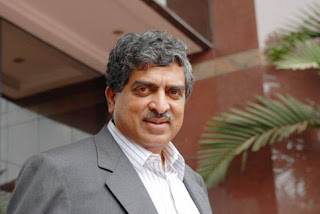R. Sukumar
By far the most legitimate concern about the Unique ID project, even if it is one that is relevant largely to the urban middle class that doesn’t gain much by being on the grid, is the one that deals with privacy and security. Without the right safeguards, including progressive legislation, it is frightening to think of what an absolute state can do with information in the UIDAI database.
Video Story
• Montek firmly in favour of UIDAI autonomy
• • •
While some activists have raised this issue (and while UIDAI has proffered its defence), these points and counterpoints have been drowned by other non-issues surrounding the project. More debate and discussion is needed on this.
UIDAI is headed by Nandan Nilekani , who is a lightning rod for controversy. While there is enough anecdotal evidence on the merits of maintaining a low profile in government, Nilekani’s past – he was a successful tech entrepreneur in his last avatar – and his personality ensure that this isn’t really an option for him. As a result, over the past year, he has, arguably, got more good press than anyone else in government. That couldn’t have gone well with some ministers, politicians, and bureaucrats. Earlier this week, viewers of national TV were fortunate to see the strange sight of a serving bureaucrat, the Member, Secretary of the Planning Commission criticizing UIDAI (it is rare to get a serving bureaucrat to comment on the record on something).
Nilekani also provokes extreme reactions from left-leaning liberals who do not trust either technology or market interventions. Unfortunately for him, the UID programme is a combination of both.
The biggest challenge to the project, however, arises from the perception that UIDAI is, in some way, finance minister Pranab Mukherjee’s baby. Over the past year, India’s home and finance ministries have been playing a zero-sum game behind the scenes, so this makes the unique ID project suspect in the eyes of the former. Coincidentally, the Registrar General and Census Commissioner of India (part of the home ministry), is opposed to the project. The Registrar General’s argument is that its National Population Registry (which is yet to start in any meaningful way) will compile the same biometric information that UIDAI is doing. The population registry can’t use UIDAI’s data, he says (no one knows why), so, UIDAI should use the population registry’s. This is a reasonable argument (after all, it makes no sense to duplicate and effort collection biometric data), as long as the information is available when it is needed. UIDAI has been given the mandate of collecting data for 200 million people. Maybe the population registry can collect it for everyone else and the two can share information? For this to happen, however, two databases, two government departments, and maybe two ministers will have to speak the same language.
Nilekani’s biggest advantage is that not many people expect him to succeed. If he does manage to, he will be feted as a hero. If he doesn’t, he, and everyone else will merely write it off as another instance of a well-meaning initiative scotched by a rigid system.

